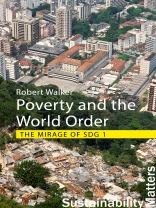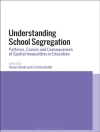Robert Walker provides a critical examination of the promise and reality of SDG1, the United Nations’ Social Development Goal designed, among other things, to eradicate extreme poverty by 2030. The author’s message is stark: there is little chance of success. Although the need for a collective and coordinated response is clear, global and national systems of governance are currently incapable of an adequate response.
While the critique is formidable, the book seeks to identify reforms necessary to meaningfully increase the likelihood of meeting SDG1’s goals. These include reshaping international institutions so that they give greater voice to governments in the developing world, facilitating enhanced modes of participatory governance, and increasing democratic accountability at a global level. Evidence is drawn throughout from a systematic review of international best practice supplemented by more detailed strategic case-studies, including from China.
Mục lục
1. SDG1 and the nature of poverty
2. Progress to 2015
3. The origins of SDG1
4. Progress since 2015
5. The impact of Covid-19
6. Tackling the root causes of poverty
7. Global governance and its limitations
8. Relying on we the people
9. Towards a moral world order
10. A postscript
Giới thiệu về tác giả
Robert Walker is Professor in the Department of Sociology at Beijing Normal University under China’s ‘High-Level Foreign Talents’ programme. He is Professor Emeritus at the University of Oxford where he is also an Emeritus Fellow of Green Templeton College. He was formerly Professor of Social Policy at the University of Nottingham. His books include The Shame of Poverty (2014).












